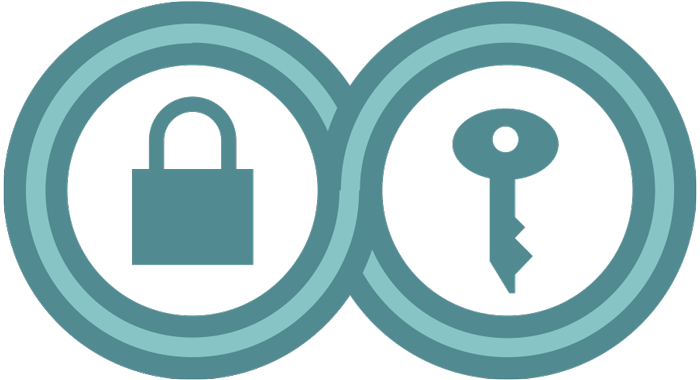How Do I Prepare My Phone for a Protest?
-
Shared here for public benefit.
Before going to a protest, demonstrators or observers should note that their cellphones may subject them to surveillance tactics by law enforcement. If your cellphone is on and unsecured, your location can be tracked and your unencrypted communications, such as SMS, may be intercepted. Additionally, police may retrieve your messages and the content of your phone if they take custody of your phone, or later by warrant or subpoena.
Stolen from another post:
"you need around 6 layers of tin foil you can test this if you have a bluetooth device start playing some music or any audio and start wrapping in tinfoil until it disconnects id also say to leave your phone at home sk it pings the cell towers that you are at home and bring a burner if you can and make sure the burner is private so use cash prepaid sims and dont put the sim in at home or work make sure its all a mall away from cameras"
Be safe tomorrow everyone
-
Having an ID can help if you do get arrested. But that's about all I carry.
Why do you need an ID? Leave it in your car if you're driving.
I don't think there's a single state that requires you to actually carry documentation.
These are the states that require you to at least verbally state your name, and only if the officer has reasonable suspicion that you have or will commit a crime.
They can ask your name. You may not have to answer.
Research your state's law on this before you go. It's in the link.
-
They may confiscate your phone and record all data on it.
If it's a fresh wipe with a good passcode, and you keep it on airplane mode, you're probably fine.
-
Why do you need an ID? Leave it in your car if you're driving.
I don't think there's a single state that requires you to actually carry documentation.
These are the states that require you to at least verbally state your name, and only if the officer has reasonable suspicion that you have or will commit a crime.
They can ask your name. You may not have to answer.
Research your state's law on this before you go. It's in the link.
lookit mr can't-get-disappeared-by-ICE over here
-
They may confiscate your phone and record all data on it.
If it's a fresh wipe with a good passcode, and you keep it on airplane mode, you're probably fine.
Set up a duress PIN on your graphene phone
-
Burner phone ... leave your main one at home ... ABSOLUTELY DO NOT BRING YOUR MAIN PHONE
Set up your burner phone with one or two accounts to things you might want to upload to ... encrypt as much as you can. Do not load all your social accounts ... only log into the bare minimum. If you are organized, log into temporary or fake or secondary accounts if you can.
Start the day without any prior history, photos or content on the phone and keep as few contacts as you can ... memorize numbers that are important to you.
Always be prepared to give up or lose your phone.
And as always ... SAFETY GLASSES .... bring a pair of industry rated CSA approved safety glasses (try to get a pair with a tint so you can pass them as sunglasses). Look for safety glasses with anything marked ANSI Z87+, sometimes written Z87.1+ (note the plus) rated or CSA Z94.3 rated are ensured to safely withstand a direct high energy strike.
.... additional things if you want to do more
Bring a small new blank paper note book you can keep in a pocket with a small pen or pencil ... you might be taking notes like license plates, name tags or names of people or places ... its always faster to just write something down than in taking a shaky photo or tapping away a note on an app
Wear a big scarf ... for guys or girls ... a scarf comes in handy for all kinds of emergencies including using it as something to cover your mouth, dress a wound, tie something or cover something up.
Wear a good pair of running shoes ... be prepared to run and be on your feet all day.
Bring a small backpack and bring a couple bottles of water and some energy bars ... keep it light because you'll be on your feet all day and if things go bad, you might be targeted if you have a large pack ... plus an empty pack can be used to carry things later if you need to.
Dress for the weather ... if its going to be hot, wear light clothing but if things go bad and you have to stay out over night or longer, bring a light jacket ... if rain is forecast within a day or two, bring a small poncho
We're so focused on electronics here, but this part can save your ass:
Bring a small new blank paper note book you can keep in a pocket with a small pen or pencil
The following is translated from the meager tactical training I've received: Emphasis on the pencil being small. You definitely don't want a full size pencil in your pocket if shit hits the fan and you get tumbled.
Maybe get a waterproof notepad. But make sure that you can easily rip out pages. Use a single sheet for all the info you don't want the police to have (like all the other burner phone numbers and such) That way you can rip that sheet out and swallow it, if you're about to be captured.
Also, about the scarfs. I don't know about the US, but at least in my own country, it's illegal to use a mask at protests. Meaning a mask would get you singled out and targeted by law enforcement.
-
Shared here for public benefit.
Before going to a protest, demonstrators or observers should note that their cellphones may subject them to surveillance tactics by law enforcement. If your cellphone is on and unsecured, your location can be tracked and your unencrypted communications, such as SMS, may be intercepted. Additionally, police may retrieve your messages and the content of your phone if they take custody of your phone, or later by warrant or subpoena.
I learned this recently: if you have an iPhone, pressing the lock button five times rapidly will lock it so that you need to enter a passcode, not just FaceID. Useful if you think somebody might forcibly use your face to unlock it
-
Shared here for public benefit.
Before going to a protest, demonstrators or observers should note that their cellphones may subject them to surveillance tactics by law enforcement. If your cellphone is on and unsecured, your location can be tracked and your unencrypted communications, such as SMS, may be intercepted. Additionally, police may retrieve your messages and the content of your phone if they take custody of your phone, or later by warrant or subpoena.
You leave it at home. Take an old factory-reset with a prepaid sim. Keep it off unless you 100% need it.
-
Burner phone ... leave your main one at home ... ABSOLUTELY DO NOT BRING YOUR MAIN PHONE
Set up your burner phone with one or two accounts to things you might want to upload to ... encrypt as much as you can. Do not load all your social accounts ... only log into the bare minimum. If you are organized, log into temporary or fake or secondary accounts if you can.
Start the day without any prior history, photos or content on the phone and keep as few contacts as you can ... memorize numbers that are important to you.
Always be prepared to give up or lose your phone.
And as always ... SAFETY GLASSES .... bring a pair of industry rated CSA approved safety glasses (try to get a pair with a tint so you can pass them as sunglasses). Look for safety glasses with anything marked ANSI Z87+, sometimes written Z87.1+ (note the plus) rated or CSA Z94.3 rated are ensured to safely withstand a direct high energy strike.
.... additional things if you want to do more
Bring a small new blank paper note book you can keep in a pocket with a small pen or pencil ... you might be taking notes like license plates, name tags or names of people or places ... its always faster to just write something down than in taking a shaky photo or tapping away a note on an app
Wear a big scarf ... for guys or girls ... a scarf comes in handy for all kinds of emergencies including using it as something to cover your mouth, dress a wound, tie something or cover something up.
Wear a good pair of running shoes ... be prepared to run and be on your feet all day.
Bring a small backpack and bring a couple bottles of water and some energy bars ... keep it light because you'll be on your feet all day and if things go bad, you might be targeted if you have a large pack ... plus an empty pack can be used to carry things later if you need to.
Dress for the weather ... if its going to be hot, wear light clothing but if things go bad and you have to stay out over night or longer, bring a light jacket ... if rain is forecast within a day or two, bring a small poncho
Wear a big scarf ... for guys or girls ... a scarf comes in handy for all kinds of emergencies including using it as something to cover your mouth, dress a wound, tie something or cover something up.
Everyone should look up what a shemagh is, and all multitude of uses it has. Pretty sure there are plenty of colors that aren't tacticool, which is inevitable when you search for it. If it works for the grunts the US sent to the Middle East, and actual Middle Eastern cultures, it'll work for you. Hitchhikers' Guide to the Galaxy describes how useful it is to carry a towel across the galaxy; this is it.
Edit: something more that I recalled of when I was in the prepper phase years ago: Marines swear on this thing called a woobie. It's their safety blanket, figuratively and practically. It's basically a quilted fabric liner under a poncho for insulation. Works just as well as blankets if you're going to be crashing somewhere overnight.
-
Shared here for public benefit.
Before going to a protest, demonstrators or observers should note that their cellphones may subject them to surveillance tactics by law enforcement. If your cellphone is on and unsecured, your location can be tracked and your unencrypted communications, such as SMS, may be intercepted. Additionally, police may retrieve your messages and the content of your phone if they take custody of your phone, or later by warrant or subpoena.
people on the internet love to talk about all these great security smart things that they will definitely never do.
leave valuables at home, wear unremarkable clothes, and write your lawyers number on your arm with a sharpie.
personally i bring my phone and a leica. ive been to jail for protesting before and in my current situation i just don't care.
-
Why do you need an ID? Leave it in your car if you're driving.
I don't think there's a single state that requires you to actually carry documentation.
These are the states that require you to at least verbally state your name, and only if the officer has reasonable suspicion that you have or will commit a crime.
They can ask your name. You may not have to answer.
Research your state's law on this before you go. It's in the link.
Regardless of the law, you can be detained by law enforcement if you cannot prove who you say you are until you can prove it.
-
Regardless of the law, you can be detained by law enforcement if you cannot prove who you say you are until you can prove it.
If law enforcement was following the law I would not be protesting.
-
Shared here for public benefit.
Before going to a protest, demonstrators or observers should note that their cellphones may subject them to surveillance tactics by law enforcement. If your cellphone is on and unsecured, your location can be tracked and your unencrypted communications, such as SMS, may be intercepted. Additionally, police may retrieve your messages and the content of your phone if they take custody of your phone, or later by warrant or subpoena.
Here is the simple trick: leave your phone at home. Get a burner.
-
So it should be safe in airplane mode, no? If I can trust my device, that is.
-
Shared here for public benefit.
Before going to a protest, demonstrators or observers should note that their cellphones may subject them to surveillance tactics by law enforcement. If your cellphone is on and unsecured, your location can be tracked and your unencrypted communications, such as SMS, may be intercepted. Additionally, police may retrieve your messages and the content of your phone if they take custody of your phone, or later by warrant or subpoena.
Jesus Christ, this conversation is scary. I wish y’all good luck that none of these precautions are necessary.
As someone in a blue state where governance is sane, I’m “raw dogging it” (effing offensive slang term but now I’ve used it once in my life and can rest easy) and bringing my kids (teens). M also going to the local demonstration rather than go into the city for a big one - to some extent it’s a numbers game: ICE can’t raid them all and police aren’t legally allowed to help them
…. And hopefully my optimism is well founded
—-
Edit: huge success! Entirely peaceful. While a few cops drove by, there was no police presence. Thousands of people of all ages lining both sides of main st, and three sides of our town common. Constant honking from supporters driving by. It was very inspirational. I’m proud of my fellow citizens and hope our voice for restoring sanity and democracy is heard.
For those pessimists,a bit more context why I was so optimistic….. a few years back, our mayor and police were participants in a local BLM rally. Also a big part of local outrage against fascism was a city counselor getting assaulted and arrested for videoing an illegal raid on one of his constituents.
-
I've seen plenty of videos of cops holding a suspect down and forcing a fingerprint unlock...
And in all likelihood forcing your fingerprint or face unlock is perfectly legally acceptable for them to do. A password or a code is something they'd have to force you to say and ultimately you can choose not to (though they're still fine to just try and hack out a pin/pattern on their own, or use phone-cracking tools or backdoors) but you have no defense whatsoever against your biometrics being used.
-
So it should be safe in airplane mode, no? If I can trust my device, that is.
Baseband protocols may stay active dependent on your phone and your apps can still capture gps for upload later. Best bet is a burner.

Attending a Protest
For quick reference, we've created a handy guide designed to be printed, folded, and carried in your pocket (PDF download). Now, more than ever, citizens must be able to hold those in power accountable and inspire others through the act of protest. Protecting your electronic devices and digital assets before, during,...
(ssd.eff.org)
-
Shared here for public benefit.
Before going to a protest, demonstrators or observers should note that their cellphones may subject them to surveillance tactics by law enforcement. If your cellphone is on and unsecured, your location can be tracked and your unencrypted communications, such as SMS, may be intercepted. Additionally, police may retrieve your messages and the content of your phone if they take custody of your phone, or later by warrant or subpoena.
You get a burner for the protest and give your phone to a friend or family member for the day so that it still pings towers at the usual places.
-
Use cash.
I did say that. But yes. Use cash whenever possible.
-
You should probably leave your own phone at home when you do. You don’t want the burner phone and your own showing up on the same towers at the same time. Turn the burner completely off when near home or your personal phone.
-
-
-
-
-
noyb sends Meta 'cease and desist' letter over AI training. European Class Action as potential next step
Technology 1
1
-
Pope Betting Odds: Bettors Lose Millions Predicting the New Pope as Polymarket Edge Fizzles Out
Technology 1
1
-
-
Surprise! People don't want AI deciding who gets a kidney transplant and who dies or endures years of misery
Technology 1
1




